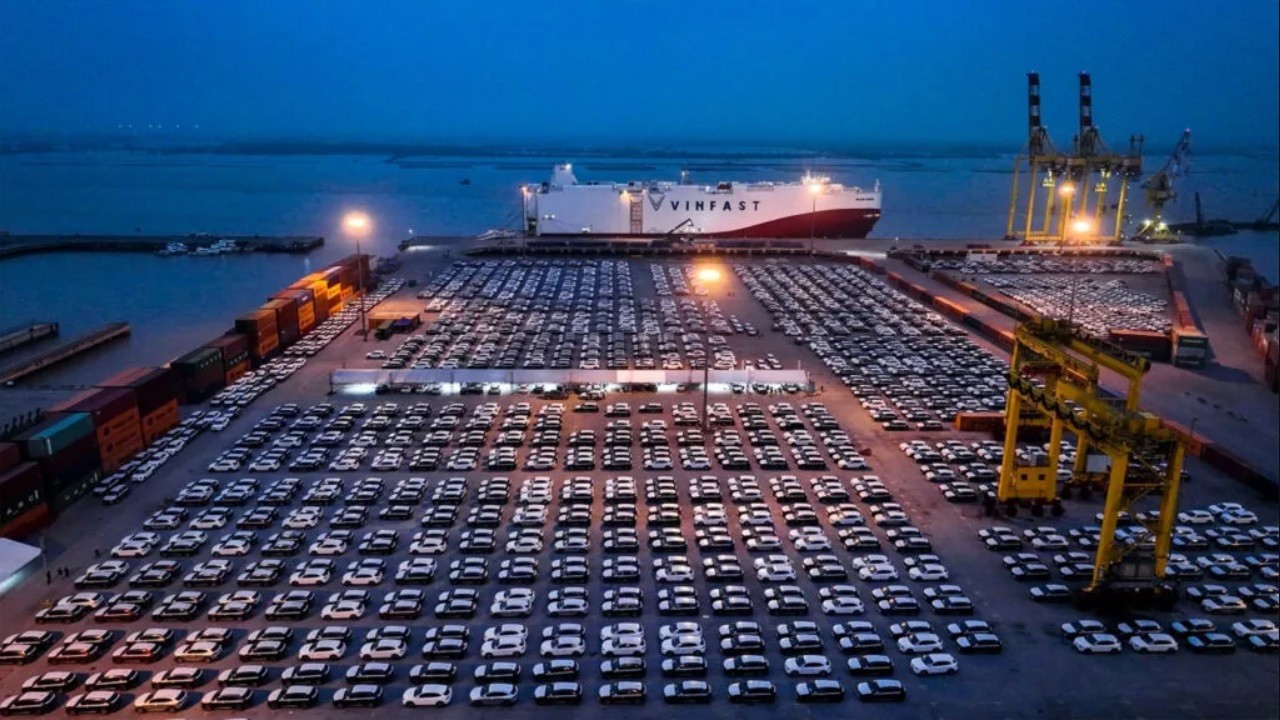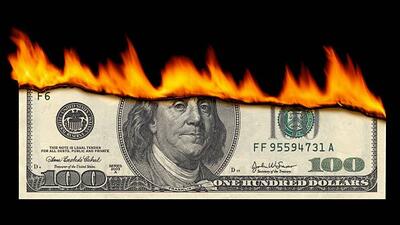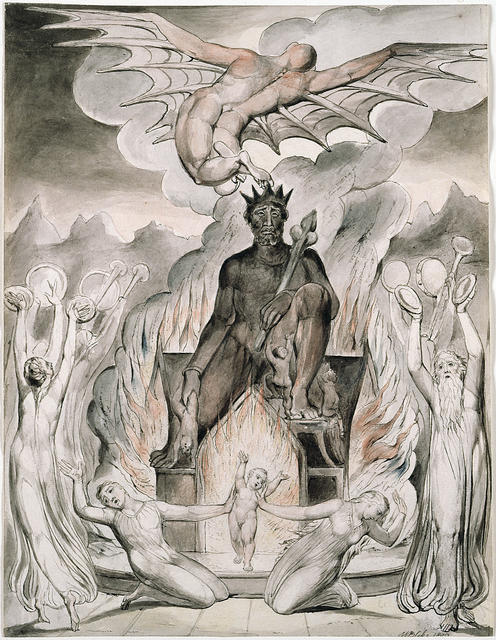
Coming soon? Original image source [1].
by Brian Shilhavy
Editor, Health Impact News
The CEOs of some of the United States’ largest retailers, including Walmart, Target, and Home Depot, visited President Donald Trump at the White House this week, with a very stern warning: consumers could be seeing empty shelves in their stores soon, due to Trump’s tariffs, especially from goods imported from China, the country with the highest current tariffs.
Trump tried to calm their fears and the markets by promising a deal would be made with China soon, and stating that President Xi had already called him “several times.”
But China mocked Trump’s comments, stating that there were currently no discussions underway, and that there would be none until Trump dropped his tariffs against China.
Here is a report from NBC News [2] published yesterday (April 25, 2025).
Product shortages and empty store shelves loom with falling shipments from China
Businesses have been canceling orders for products from China after Trump imposed a 145% tariff on most Chinese imports, risking product shortages for American consumers.
Excerpts:
Retailers are warning that U.S. consumers could once again be faced with empty store shelves and the kind of supply chain snarls that marked the Covid era if President Donald Trump’s tariffs on China remain at their current levels.
Companies have been canceling their shipments of goods from China and halting new orders after Trump put a 145% tariff on nearly all Chinese imports this month.
Typically, U.S. retailers would be ramping up their orders for two critical periods later this year: the fall back-to-school shopping season and the winter holidays. And the pullback is creating uncertainty about whether U.S. shoppers will have the selection of goods they’ve grown accustomed to in the coming months.
“They’re making their holiday buying decisions now,” said Jonathan Gold, vice president of supply chain and customs policy for the National Retail Federation.
“It’s a challenge for folks to figure out how to properly order and price with all the uncertainty that’s out there on the tariffs.”
At the current tariff rate, a U.S.-based company would have to pay at least $145 in tariff fees to Customs and Border Protection to import an item valued at $100, except for electronics and pharmaceuticals, which are levied at a lower rate.
That fee could wipe out any profit a company would be making and force it to sell its products at a loss or raise prices to levels that consumers might not be willing to pay.
Chinese vendors told NBC News this month that American companies, including Target, have halted orders.
“Like back during Covid where we had shortages of toilet paper, we are going to start seeing that in more and more goods,” said Sean Stein, president of the U.S.-China Business Council.
“Starting in a couple of weeks, we are just going to start running out of stuff, and if the administration waits to resolve the problem until we have shortages and hoarding, that is just too late.”
Full article [2].
This problem with the U.S. supply chain and imported goods is no longer a matter of editorial comment about what people think might happen in the future, as it is all starting to happen already, as we can see by what is currently happening at U.S. ports right now.

Image source [3].
One of the things we are observing, is that major automobile companies that sell foreign cars, which are subject to 25% tariffs now, are halting their shipments and literally abandoning thousands of vehicles which are being parked at U.S. ports.
Automakers Freeze Imports As Thousands Of Cars Suddenly Stuck At US Ports
Automakers have halted shipments or taken a wait-and-see approach in case Trump shifts course
Excerpts:
The trade war may have started as headline fodder, but its ripple effects are now parked—literally—at ports across America. Triggered by President Donald Trump’s aggressive tariff strategy, the fallout hasn’t just rattled the stock market with unpredictable spikes and dives; it’s also forced automakers to seriously reconsider how they operate in the USA.
Many brands have adopted a ‘wait-and-see’ strategy, well aware that the President can change his tune quickly and unexpectedly. Now, thousands of newly-imported vehicles are being held at ports across the United States, while many brands have paused shipments to the US entirely, eager not to pay any unnecessary tariffs.
Speaking with The Financial Times, unnamed executives from the logistics and automotive sectors say imported cars are piling up at US ports, with some close to full capacity. Companies such as Aston Martin, Audi, and Jaguar Land Rover have temporarily suspended shipping to the US in the hope their current inventories will last until long-term resolutions are reached with the country’s trading partners.
Full article [3].
Audi pauses all U.S. imports, parks cars at ports
Excerpts:
Let’s say you’ve had your eye on a German luxury ride for years. Your chance might have come and gone while you missed it. As of this month, Audi and VW have hit pause on all U.S. vehicle imports from Europe and Mexico. Why? President Donald Trump’s new 25% auto tariff.
Cars already in the U.S. before April 2 are fine, but everything else? Stuck.
If your dream car’s parked at a port, it might never see a U.S. dealership lot. Or it might arrive with a hefty import fee tacked onto the MSRP.
Welcome to the new age of tariffs and trade wars—where your dream of a German sports car might already be much more expensive.
Audi has paused all vehicle imports to the United States due to the new import tariffs. According to Carscoops, cars that arrived after April 2 are being held at U.S. ports and are not being delivered to dealers.
Full article [4].
With many retailers already canceling orders from products originating from China, we are now seeing a huge drop of shipments coming into U.S. ports, which will cripple supply chains much like we saw during COVID.
Imports are about to collapse at America’s busiest port
Excerpts:
This is like watching a car crash in slow motion.
Despite the chaotic tariff rollout, companies are turning off the China-to-US trade spigot. But like a garden hose that wraps halfway around the world, it takes some time before the water stops flowing on our end.
A typical cargo ship filled with goods manufactured in China needs two to three weeks to travel to the Port of Los Angeles. After a flurry of panicked pre-tariff imports to fill warehouses, we are about to see what it looks like when most imports from China stop arriving at US ports.
The Port of Los Angeles is the largest port in the US. Sitting on San Pedro Bay, the 7,500-acre facility sprawls across 43 miles of waterfront, filled with cargo and passenger terminals, warehouses, and rail- and truck-based cargo loading.
According to the port, about 40% of the imports arriving there originate from China.
A recent Goldman Sachs research note said that US retailers are expecting a 20% to 30% drop in exports in Q2, which lines up with what Seroka said he was hearing from suppliers in China.
“The reports I got out of China and Southeast Asia yesterday is that some really famous brands have put a pause on shipments for the time being,” he said.
In a few short weeks, significant drops are expected in the number of vessels arriving at the port. The week ending May 10 currently has only 12 vessels scheduled to arrive, a 44% drop from the same time last year.
The effects of such a slowdown will be significant, and will likely hurt the local economy.
“Here in Los Angeles, tariffs will affect port related jobs, because as we know fewer containers mean fewer jobs here at the port,” Seroka said.
Full article [5].

This is now spilling over into the U.S. logistics market, and threatens to put many truck drivers out of work.
The trucking industry hits the brakes with tariffs set to dent imports
U.S. trucking is heading for a slowdown, with industry players fearing the “worst is yet to come” as tariffs start to crimp imports.
Trucking volumes have plunged to near pre-pandemic levels, according to Craig Fuller, founder of the logistics industry publication FreightWaves.
“With imports deteriorating, volumes are expected to fall by another 3-4% over the next month,” Fuller said Tuesday in a post on X, citing the real-time freight data platform Sonar, which he also founded. Fuller said that’s a worrying sign for truckers this year.
Container volumes are down 20% at the busy Port of Los Angeles since a year ago, FreightWaves reported Tuesday, saying “this downturn spells trouble” for trucking firms that ship the overseas cargo inland across the country.
Freight trucks carrying goods out of the metro area are “converging downward toward 2020 lockdown levels,” the outlet said.
The flags come as warning signs pile up for the broader U.S. economy due to President Donald’s Trump’s evolving trade war.
Full article [6].
While Trump’s Tariffs are Headline News, Few are Talking about the Effects of a Weakening U.S. Dollar – a “Double Whammy” to U.S. Consumers

While Trump’s tariffs are headline news, and rightfully so, what few are reporting is that in the midst of this trade war, Trump’s Administration is deliberately weakening the U.S. dollar, so that U.S.-made goods will be more affordable to other countries, which they believe will help balance the U.S. trade deficits with most countries.
But that also makes imports more expensive, even without the tariffs.
I know this firsthand, as a business owner in the U.S. with an ecommerce business [7] that sells high quality imported foods, most of which is not grown or produced in the U.S., such as coconut oil and coconut products.
When the dollar weakens, it affects the exchange rates in local currencies. Since Trump took office, we have seen the dollar’s purchasing power decrease by about 10%.
My company is fortunate in that we do not import anything from China, but most other countries currently have a 10% tariff, and when you add in the 10% loss (so far!) on the U.S. dollar, that is a 20% increase in imported goods NOT from China.
A 20% inflation on basic goods imported into the U.S is very serious!
This was published in Business Insider [8] a couple of days ago:
The weak dollar is about to hit your summer plans
A weaker US dollar could increase prices for everything from your Walmart run to a European vacation.
Excerpts:
The US Dollar Index has fallen more than 8% so far this year. That puts the currency at its weakest point in roughly three years.
If it stays low, the dollar is likely to cost US consumers more money — even if they never leave the country.
“The US dollar’s purchasing power in global markets, whether for imported goods or US tourists traveling to foreign countries, is taking a beating,” Eswar Prasad, a professor of trade policy at Cornell University, said.
Along with tariffs, a weaker dollar creates a “double whammy” for consumers, said Paolo Pasquariello, a professor of finance at the University of Michigan’s Ross School of Business.
Imported goods “are going to cost more because of the tariffs,” he said.
“They’re going to be transferred almost entirely onto the consumers,” Pasquariello added.
“But so is the devaluation of the dollar.”
Full article [8].
I don’t need a professor of economics to tell me this, as I am already seeing it in my own business, but most Americans still do not fully realize what is about to happen to the economy.
Uncertainty and Chaos are the New Normal in the U.S. Economy
Like every other American business leader right now, the most difficult thing facing us about the future is UNCERTAINTY.
We have to look at what is happening right now in real time with our businesses, while also keeping abreast of the current news and try to guess what exactly Trump is going to do next, which is a futile effort it seems as he changes his mind so often.
Every day I have to make decisions about purchases, and how to price our products without it being too much of a burden to our customers, but also knowing that if I don’t get it right, I could easily be out of business by the end of the year because I did not charge enough to cover our costs and be able to continue putting in new orders for inventory.
The auto industry is in the worst shape right now, but this is going to spill over into every other sector of the economy.
In my opinion at this point, I believe that China is in a better situation than the U.S., because they still have their factories and manufacturing base, while the U.S. has to (re)develop that to truly “uncouple” from our dependence on cheap goods made in China, which could take many years.
I don’t think China has much motivation to play ball with Trump, as they have been preparing for this for a long time, and they now have a consumer economy right there in China that will soon, if it hasn’t already, probably exceed the U.S. consumer economy.
Trump seems to believe that everyone still respects the U.S. as the greatest country with the greatest economy in the world, but I doubt that this is true.
I also don’t think Russia has much motivation to give into any of Trump’s demands about Ukraine, as I think they probably believe that their military is more advanced than ours, and they already do not do any trade with the U.S. due to existing sanctions. So they don’t have an economic motive to give in to any of Trump’s demands either.
I suspect that if things get really bad in the economy, that Trump will bail out the large businesses, and let the rest of us go down, those of us who comprise America’s small business owners who have done our part to hold up this economy for decades now.
Didn’t Trump already do this in 2020 when he declared most small businesses to be “non-essential” and were forced to shut down due to a FAKE coronavirus that was simply the annual flu bug renamed?
He poured $trillions into the economy through Big Pharma, and let small businesses in local communities suffer as they were locked down.
I have waited for a couple of weeks before publishing this article, as I wanted to see for myself what was going on rather than just read what was in the news every day, and I did not want to create unnecessary fear.
But we have talked to all of our customs brokers here in the U.S. in the past couple of weeks who clear our imports at the ports, and they share our frustration, as there is still so much uncertainty.
But what we do know right now, is that for every new order we place from our suppliers, we will be subject to (at least) a 10% tariff, and the cost of the products we import are becoming more expensive, even without tariffs, because of the weakening U.S. dollar that this administration is destroying, on purpose.
We have not yet raised any of our prices yet due to tariffs, but we soon will have no choice but to do so, if we want to continue importing goods, and continue selling in the U.S.
Most of our imported goods are NOT grown or produced in the U.S. market (coconut oil, coffee, chocolate, Black Cumin seed oil, etc.), or if they are, they are all contaminated with GMO DNA (U.S. corn) or herbicides like glyphosate.
Trump could still change his mind, again, and get rid of most of these tariffs as he works on “deals” with specific countries, but the damage has already been done now, even if he does something like that, and I don’t think our economy will ever be the same again.
Comment on this article at HealthImpactNews.com [9].
This article was written by Human Superior Intelligence (HSI) [10]
[10]
See Also:
Understand the Times We are Currently Living Through
New FREE eBook! Restoring the Foundation of New Testament Faith in Jesus Christ – by Brian Shilhavy [13]
Who are God’s “Chosen People”? [14]
KABBALAH: The Anti-Christ Religion of Satan that Controls the World Today [15]
 [15]
[15]
Christian Teaching on Sex and Marriage vs. The Actual Biblical Teaching [16]
Exposing the Christian Zionism Cult [17]
The Bewitching of America with the Evil Eye and the Mark of the Beast [18]
Jesus Christ’s Opposition to the Jewish State: Lessons for Today [19]
Identifying the Luciferian Globalists Implementing the New World Order – Who are the “Jews”? [20]
The Brain Myth: Your Intellect and Thoughts Originate in Your Heart, Not Your Brain [21]
What is the Condition of Your Heart? The Superiority of the Human Heart over the Human Brain [22]
The Seal and Mark of God is Far More Important than the “Mark of the Beast” – Are You Prepared for What’s Coming? [23]
The Satanic Roots to Modern Medicine – The Image of the Beast? [24]
Medicine: Idolatry in the Twenty First Century – 10-Year-Old Article More Relevant Today than the Day it was Written [25]
 [26]
[26]
Having problems receiving our emails? See:
How to Beat Internet Censorship and Create Your Own Newsfeed [27]
We Are Now on Telegram [28]. Video channels at Bitchute [29], and Odysee [30].
If our website is seized and shut down, find us on Telegram [28], as well as Bitchute [29] and Odysee [30] for further instructions about where to find us.
If you use the TOR Onion browser [31], here are the links and corresponding URLs to use in the TOR browser [31] to find us on the Dark Web: Health Impact News [32], Vaccine Impact [33], Medical Kidnap [34], Created4Health [35], CoconutOil.com [36].















